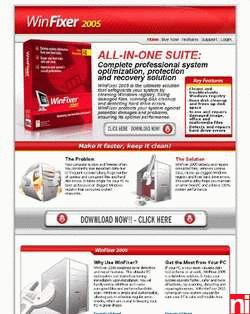Malware is any software intentionally designed to cause disruption to a computer, server, client, or computer network, leak private information, gain unauthorized access to information or systems, deprive access to information, or which unknowingly interferes with the user's computer security and privacy. Researchers tend to classify malware into one or more sub-types.

Antivirus software, also known as anti-malware, is a computer program used to prevent, detect, and remove malware.
Linux malware includes viruses, Trojans, worms and other types of malware that affect the Linux family of operating systems. Linux, Unix and other Unix-like computer operating systems are generally regarded as very well-protected against, but not immune to, computer viruses.

ESET, s.r.o., is a software company specializing in cybersecurity. ESET's security products are made in Europe and provide security software in over 200 countries and territories worldwide. Its software is localized into more than 30 languages.

Scareware is a form of malware which uses social engineering to cause shock, anxiety, or the perception of a threat in order to manipulate users into buying unwanted software. Scareware is part of a class of malicious software that includes rogue security software, ransomware and other scam software that tricks users into believing their computer is infected with a virus, then suggests that they download and pay for fake antivirus software to remove it. Usually the virus is fictional and the software is non-functional or malware itself. According to the Anti-Phishing Working Group, the number of scareware packages in circulation rose from 2,850 to 9,287 in the second half of 2008. In the first half of 2009, the APWG identified a 585% increase in scareware programs.

ESET NOD32 Antivirus, commonly known as NOD32, is an antivirus software package made by the Slovak company ESET. ESET NOD32 Antivirus is sold in two editions, Home Edition and Business Edition. The Business Edition packages add ESET Remote Administrator allowing for server deployment and management, mirroring of threat signature database updates and the ability to install on Microsoft Windows Server operating systems.

Microsoft Defender Antivirus is an antivirus software component of Microsoft Windows. It was first released as a downloadable free anti-spyware program for Windows XP and was shipped with Windows Vista and Windows 7. It has evolved into a full antivirus program, replacing Microsoft Security Essentials in Windows 8 or later versions.

WinFixer was a family of scareware rogue security programs developed by Winsoftware which claimed to repair computer system problems on Microsoft Windows computers if a user purchased the full version of the software. The software was mainly installed without the user's consent. McAfee claimed that "the primary function of the free version appears to be to alarm the user into paying for registration, at least partially based on false or erroneous detections." The program prompted the user to purchase a paid copy of the program.
Rogue security software is a form of malicious software and internet fraud that misleads users into believing there is a virus on their computer and aims to convince them to pay for a fake malware removal tool that actually installs malware on their computer. It is a form of scareware that manipulates users through fear, and a form of ransomware. Rogue security software has been a serious security threat in desktop computing since 2008. An early example that gained infamy was SpySheriff and its clones, such as Nava Shield.

Security and Maintenance is a component of the Windows NT family of operating systems that monitors the security and maintenance status of the computer. Its monitoring criteria includes optimal operation of antivirus software, personal firewall, as well as the working status of Backup and Restore, Network Access Protection (NAP), User Account Control (UAC), Windows Error Reporting (WER), and Windows Update. It notifies the user of any problem with the monitored criteria, such as when an antivirus program is not up-to-date or is offline.

SpySheriff is malware that disguises itself as anti-spyware software. It attempts to mislead the user with false security alerts, threatening them into buying the program. Like other rogue antiviruses, after producing a list of false threats, it prompts the user to pay to remove them. The software is particularly difficult to remove, since it nests its components in System Restore folders, and also blocks some system management tools. However, SpySheriff can be removed by an experienced user, antivirus software, or by using a rescue disk.

VirusTotal is a website created by the Spanish security company Hispasec Sistemas. Launched in June 2004, it was acquired by Google in September 2012. The company's ownership switched in January 2018 to Chronicle, a subsidiary of Google.

A computer virus is a type of malware that, when executed, replicates itself by modifying other computer programs and inserting its own code into those programs. If this replication succeeds, the affected areas are then said to be "infected" with a computer virus, a metaphor derived from biological viruses.

Microsoft Security Essentials (MSE) is a discontinued antivirus software (AV) product that provides protection against different types of malicious software, such as computer viruses, spyware, rootkits, and Trojan horses. Prior to version 4.5, MSE ran on Windows XP, Windows Vista, and Windows 7, but not on Windows 8 and later versions, which have built-in AV components known as Windows Defender. MSE 4.5 and later versions do not run on Windows XP. The license agreement allows home users and small businesses to install and use the product free of charge.

Comodo Internet Security (CIS) is developed and distributed by Comodo Group, a freemium Internet security suite that includes an antivirus program, personal firewall, sandbox, host-based intrusion prevention system (HIPS) and website filtering.
MS Antivirus is a scareware rogue anti-virus which purports to remove virus infections found on a computer running Microsoft Windows. It attempts to scam the user into purchasing a "full version" of the software. The company and the individuals behind Bakasoftware operated under other different 'company' names, including Innovagest2000, Innovative Marketing Ukraine, Pandora Software, LocusSoftware, etc.
AV Security Suite is a type of rogue security software, commonly categorized as scareware and malware, which masquerades as a legitimate virus scanner on the victim's Microsoft Windows system. While it is predominantly observed on Windows platforms, it may adopt alternative names on other operating systems to better integrate itself within their interfaces, thereby enhancing its deceptive nature. In the task manager, the program typically appears as a series of seemingly random characters followed by identifiers such as "tssd.exe" or "shdw.exe," a tactic aimed at complicating detection and removal efforts.
Winwebsec is a category of malware that targets the users of Windows operating systems and produces fake claims as genuine anti-malware software, then demands payment to provide fixes to fictitious problems.











